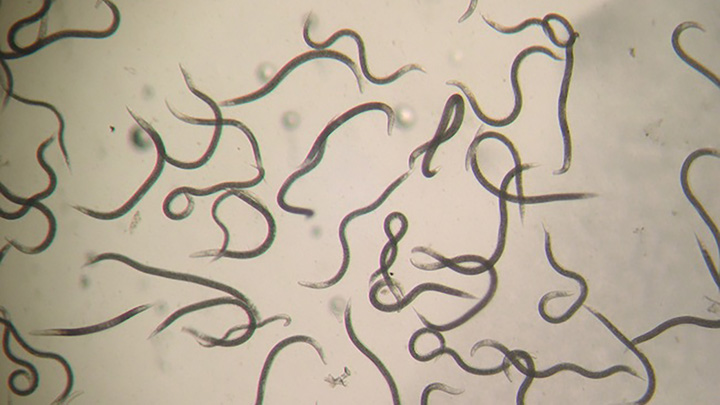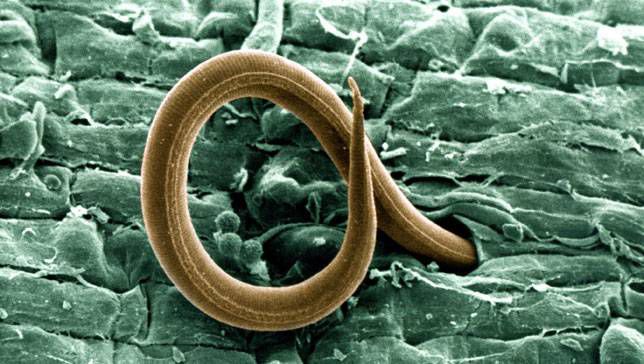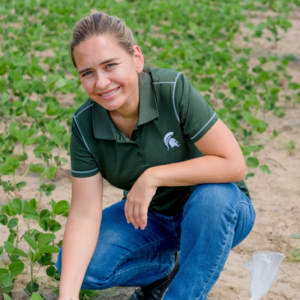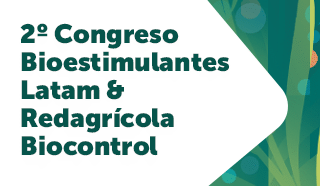01/Apr/2022
#04
SUBSCRIBE TO OUR NEWSLETTER
Suscríbete a nuestro newsletter
Last issue articles
- Biome: the space gaining protagonism in biological strategies for crops
- The export dynamics driving the Mexican biologicals market
- New model developed to evaluate effects of two or more biostimulants combined in a single crop
- Dr. Wagner Bettiol and the biocontrol market in Brazil
- Las propiedades que hacen del Trichoderma un socio clave en la búsqueda de mejores desempeños en los cultivos
- Changes in the new regulation on fertilizers and biostimulants in Chile
- Innovak Global, the expansion of root specialists
Market movers
- Renewable-based nitrogen fertilizer firm raises US$ 20 million in investment round
- Bayer and Ginkgo Bioworks close agreement to strengthen open innovation platform for agricultural biologics
- Argentinean firm Puna Bio: Millions raised to study superbacteria for agricultural use
- Corteva Agriscience signed an agreement to acquire leading biologics company Symborg
- Brazilian study uncovers ants' potential in crop protection
- Huber acquires specialty plant nutrition producer Biolchim
- UPL announces agreement to distribute bioprotector based on orange oil
- ICL and Lavie Bio start strategic collaboration to develop new biostimulants
- Hortitool and Green Smile to organize the Morocco Berry Conference 2022

Biological Control Of Nematodes, An Alternative For Highly Profitable Crops
While most of the strategies to combat these small worms that contaminate crop soils are still based on conventional solutions, biological products are emerging as an alternative in fields with higher value production.
Rodrigo Pizarro
Therefore, the best strategy is to prevent their entrance through plants that come directly from nurseries, because once they arrive in the field, they stay forever. These little worms are difficult to control, they are well protected, are very efficient reproductively, adapt to all kinds of conditions, and can become resistant.
"Their management will depend a lot on the scientist or extensionist who, after a soil sample, can tell the producer that he/she has the problem and that, for example, it’s 'eating' 30% of his/her profit" explains Dr. Marisol Quintanilla- Tornel, professor and researcher at the department of entomology at Michigan State University, USA.
"In more profitable crops, there is an increasingly massive use of biological or more sustainable alternatives"
Marisol Quintanilla, researcher at Michigan State University.
There are several control alternatives on the market, and the decision to use nematicides is taken in the field, together with an analysis of the problem. However, the biological options to control this issue are beginning to appear. "There is a fungus that is being used in different countries and for different crops, the Paecilomyces lilacinus, which has proven to be effective in some trials for the control of Meloidogyne spp " and there are also other options in biological control, says the expert.
The trend in intensive agriculture
What is certain is that biological control of nematodes is an alternative that is being used in highly profitable agricultural crops. "Today they are a trend, and they are being used a lot in flower crops in Colombia and Ecuador," confirms Dr. Quintanilla-Tornel. In the US, there is a greater or lesser use depending on the crop and the production area. Thus, for example, in extensive production of corn and soybeans, producers opt for cheaper products. "However, in more profitable crops, there is an increasingly massive use of biological or more sustainable alternatives," she confirms, referring to a trend that has also been growing due to market pressures, which require producers to incorporate biological tools.
The use of fungi is not the only alternative for biological control of nematodes. One that has shown a biological control effect of phytopathogenic nematodes through its production of metabolites in a series of crops is Burkholderia. Other RPCs such as Azotobacter, Bacillus, Serratia, and Streptomyces are genera that have potential for biological control of nematodes. "In fact, there are many companies that evaluate this type of bacteria that produce chemical metabolites which are toxic to nematodes," says the specialist.

Nematode control is more effective before planting as there are more options that can be used when the crop is not yet in the soil.
Likewise, there are cases in which cover crops are being used "that have proven to be very effective for the control of nematodes. The control may be because they are not hosts for the nematode, but they can also trap the nematodes or produce metabolites that reduce their population”, she specifies. Fresh guano also generates nematicidal substances and biofumigation or anaerobic disinfestation are alternatives for those highly profitable horticultural crops that are produced in greenhouses in the Netherlands and Almería, in Spain.
“All this can be combined with a conventional program. And if the solution is very effective, it could replace chemical treatment, and one of the most important steps is the rotation of crops that are not hosts for the nematode of interest," says Dr. Quintanilla-Tornel. However, producers must know that more than one strategy will always be required, because with this problem the best strategy is, and will continue to be, coexistence.
Last issue articles
- Biome: the space gaining protagonism in biological strategies for crops
- The export dynamics driving the Mexican biologicals market
- New model developed to evaluate effects of two or more biostimulants combined in a single crop
- Dr. Wagner Bettiol and the biocontrol market in Brazil
- Las propiedades que hacen del Trichoderma un socio clave en la búsqueda de mejores desempeños en los cultivos
- Changes in the new regulation on fertilizers and biostimulants in Chile
- nnovak Global, la expansión de los especialistas en la raíz
Market movers
- Argentinean firm Puna Bio: Millions raised to study superbacteria for agricultural use
- Corteva Agriscience signed an agreement to acquire leading biologics company Symborg
- Brazilian study uncovers ants' potential in crop protection
- Huber acquires specialty plant nutrition producer Biolchim
- UPL announces agreement to distribute bioprotector based on orange oil
- ICL and Lavie Bio start strategic collaboration to develop new biostimulants
- Hortitool and Green Smile to organize the Morocco Berry Conference 2022
About us
Biologicals Latam es una revista digital trimestral de Redagrícola que informa de manera especializada sobre la intensa actividad que se está desarrollando en el espacio de los bioinsumos para la producción agrícola. Esta publicación es complemento del Curso Online de Bioestimulantes y Biocontrol y las conferencias que este grupo de medios realiza en torno al tema.





